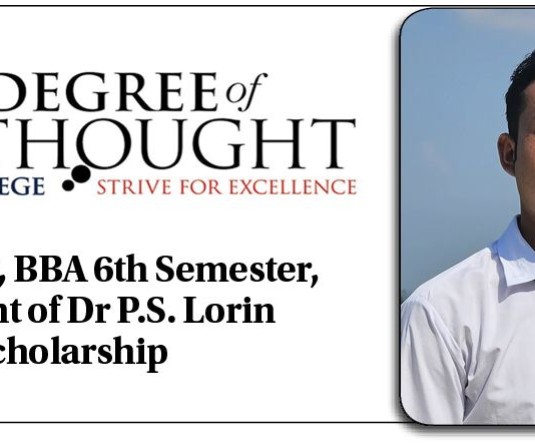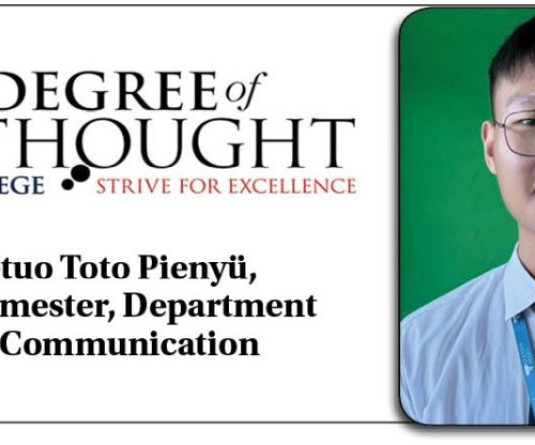
Coming of age can be a complex process.
The thought of reaching this stage may be vague. Gerascophobia is the fear of growing up. It includes symptoms like fear of ageing, avoidance of any discussion related to it. Adulting is a natural process. However, there are observable differences in the time frame of adulting in Western countries as compared to that of India. For instance, in the US, a lot of children, by the time they reach sixteen in high school, might be doing summer jobs. Contrarily, in India, a sixteen-year-old adolescent might still be confined at home and is usually treated as a kid and such teens are considered immature and incapable of making their own decisions. There are various reasons behind these differences, including family dynamics, the educational system, and cultural differences etc. Thus, there are considerable differences in the teens of India as compared to those of their counterparts.
In the context of India, in many cases, individuals become independent only in their late teens. This period is marked by both biological and societal transitions. We complete school and get into college/university. During freshman year, we get overwhelmed by the thought of having to go through a lot of semesters. We get impatient about graduating and settling down in life, but it's ironic how things turn out. As we come closer to graduation, it gets a little overwhelming imagining the life ahead of us. Once what felt ambitious and possible now felt too much.
We also tend to imagine the aftermath of failure and have anxiety about it even before facing it. There are certain reasons behind these which need to be addressed. The most significant reason indeed could be being a ‘perfectionist’. Generally, people tend to have a preconceived notion that perfectionism leads to an impeccable life, making things clearer. However, the paradox of perfectionism is that it usually leads to anxiety, procrastination and eventually lowers an individual's performance.
Perfectionism, thus, can prove to be futile. At present, because of the excessive consumption of social media, youths are usually victims of Obsessive Compulsive Disorder (OCD), an eating disorder like anorexia nervosa, driven by a desire for control and a poor body image, difficulty in maintaining relationships, anxiety, burnout and exhaustion. Though sometimes, when we do well in certain fields, we also begin to experience FOMO( Fear Of Missing Out). For instance, a person who might be very career-oriented might have the fear of missing out on friendships, experiencing romantic relationships, etc. Meanwhile, a person solely giving importance to trivial temporary pleasure and making memories might deep down have a sense of guilt for not working towards building a stable future.
Is figuring things out the most challenging part?
Life in the late teens and early to mid-20s is usually filled with self-doubt. It becomes a major one-dimensional shift to another. Though reluctant at first, we feel obliged to come out of our comfort zone. It gets difficult to process how once we had a happy-go-lucky attitude, but now we are stepping into a new phase in life. Sometimes we do not accept the fact that we are adulting because with adulting comes new challenges, great responsibilities and also career uncertainties. We sometimes avoid taking responsibility for our actions because of the fear of the unknown.
This phase is often called the ‘Peter Pan Syndrome’—the feeling that everyone else has figured out life while we’re still lost. Seeing others settle can make us feel inadequate, not out of envy, but because we compare ourselves. Society’s pressure for early success adds to this, but remember, the grass isn’t always greener. Over-focusing on others can block your own growth. Everyone’s timeline is unique and might even turn out better. Many have felt this confusion before us, including our elders, who overcame it with patience and persistence. Life isn’t a formula with guaranteed results; luck, timing, and circumstances all play a part. Feeling lost or overwhelmed is part of life—it will pass. Emotions change, but life should be lived beyond feelings. It’s okay to figure things out along the way.
As we chase our dreams, we wonder if waiting will pay off or be a waste. Life isn’t linear, and growth is uncomfortable, but stagnation is worse. Fear signals when to step up. Things often work out in unexpected ways. Stay humble, keep learning, and welcome criticism. Risks carry hidden chances. Sometimes we live too much for others—remember, it’s not your job to fix everyone’s perception of you.
At one point, we all experience both ends of the spectrum, whether it's embracing change with open arms or dreading the inevitable, whether it's changing schools, college, big life choices, etc. We should remember that it's normal even if we don't get the desired outcome. We can figure things out by making mistakes, trying to control things and realising we are never in control. Growing up might feel Intimidating, not because we are afraid of soon facing the quarter life crisis, but it's just because we realise that adulting does not come with instructions.
Ultimately, we need to view things with a broader perspective. You can risk taking a bold step. Some things and people are worth the risk. Even if you don't get the desired outcome, you'll probably have the answer in the end. Navigating things amid uncertainty is something we are all trying to learn, and maybe we will never fully know. The only way you can figure things out is just by fully living and knowing that at the end of the day, even if you lose everything, you'll at least have yourself.
Degree of Thought is a weekly community column initiated by Tetso College in partnership with The Morung Express. Degree of Thought will delve into the social, cultural, political and educational issues around us. The views expressed here do not reflect the opinion of the institution. Tetso College is a NAAC Accredited UGC recognised Commerce and Arts College. The editorial team includes Chubamenla, Asst. Professor Dept. of English and Rinsit Sareo, Asst. Manager, IT, Media & Communications. For feedback or comments please email: dot@tetsocollege.org






